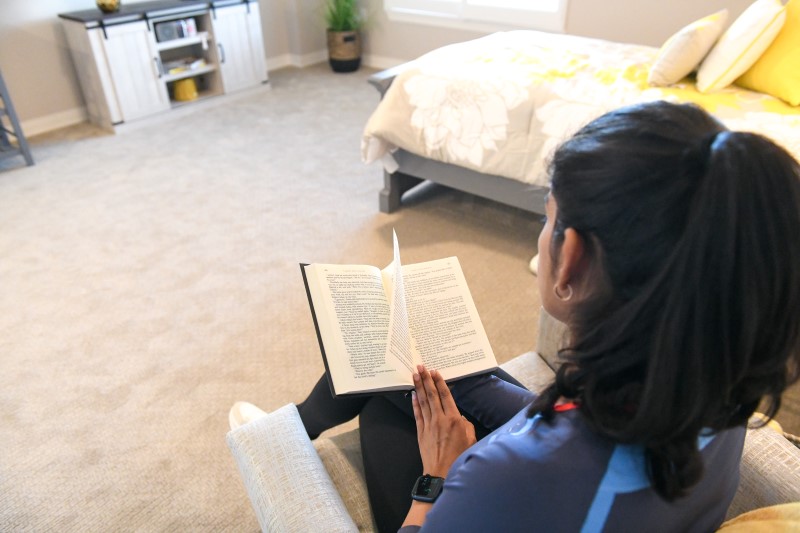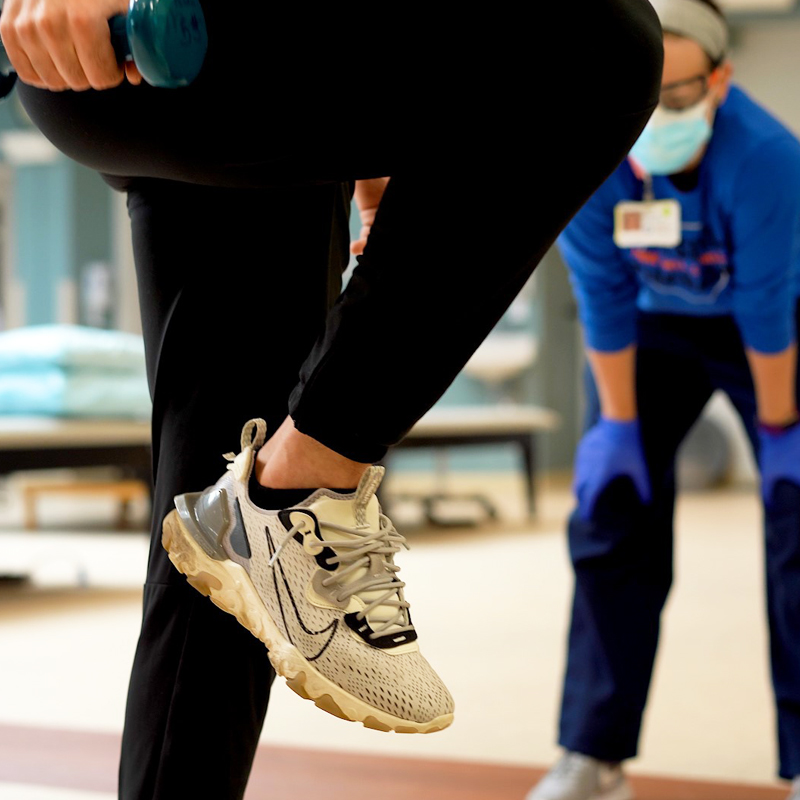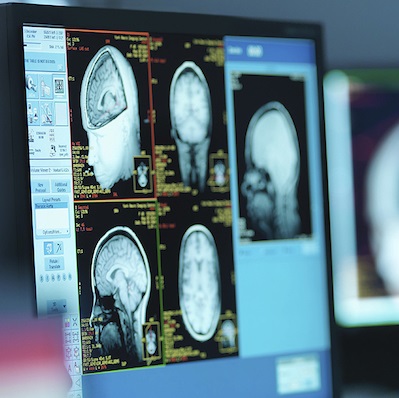

After a brain injury, it’s natural to fear you’ll never be the same person again. But with time and hard work, you can make a meaningful recovery.
“Rehabilitation therapy focuses on all activities of daily living—anything we do to take care of ourselves,” says Jaime M. Levine, D.O., medical director of brain injury rehabilitation at the Extended Recovery Unit at JFK Johnson Rehabilitation Institute. “This includes everything from how we think to how we act with others to every mental and cognitive task we perform throughout the day.”
What Skills Does Rehabilitation Help With?
The goal of therapy is to help the survivor continue to live as independently as possible. To that end, some of the most common skills that rehabilitation supports include:
- Self-care skills: brushing your teeth, feeding yourself breakfast and putting on a pair of pants
- Motor skills: gross motor skills, like transferring in or out of a wheelchair and walking across the room, as well fine motor skills, like buttoning a shirt and putting coins into a wallet
- Communication skills: talking to friend and understanding how he or she responds
- Cognitive skills: remembering where you put your keys and deciding what to eat for breakfast
- Social skills: taking turns in a conversation and understanding the concept of personal space
- Emotional skills: how to deal with mood swings, depression and irritability
What Does a Rehabilitation Program Look Like?
Recovery begins as quickly as possible after a brain injury. Multiple therapists from various departments contribute to your care, working together and sharing information about your treatment and progress. This multidisciplinary team usually meets officially once a week, although Dr. Levine stresses that most teams talk about their patients informally every day.
The multidisciplinary team consists of:
- A physician, usually a rehabilitation medicine specialist with brain injury medicine expertise. This doctor, also known as a physiatrist, is usually the team leader. “I like to think of myself as the conductor,” says Brian D. Greenwald, M.D., medical director of the Center for Brain Injuries at JFK Johnson. “Each member of the team knows their own parts; the conductor simply makes sure everything is harmonized.”
- A physical therapist, who uses exercises and hands-on care to help with movement and balance.
- An occupational therapist, who helps with strategies to perform activities of daily living like dressing and bathing.
- A speech therapist, who helps promote language and communication, as well as swallowing and feeding.
- A neuropsychologist, who evaluates the person’s specific injury and its effect on thinking and behavior, then uses that information to devise a treatment plan.
- A rehabilitation nurse, who helps manage health issues.
- A recreational therapist, who uses leisure activities like arts and crafts, animals, music, and community outings to help improve cognitive and other functions.
- A social worker, who helps coordinate with family and provides practical advice about support services, living arrangements and insurance.
Dr. Levine emphasizes that the secret sauce is in coordination among the team. “When we’re constantly bouncing ideas off of each other, that’s where the magic of the team shines through,” she says.
Next Steps & Resources:
- Meet our sources: Jaime M. Levine, D.O. and Brian D. Greenwald, M.D. To make an appointment with Dr. Levine, Dr. Greenwald or another doctor near you, call 800-822-8905 or visit our website.
- Rehab in the times of COVID-19
- Differences between physical and occupational therapy
- Learn more about our multidisciplinary approach to therapy after brain injuries
Find a doctor near me

How to Beat Brain Fog

Five Tips for a Healthier Workout

8 Possible Causes (and Treatments) for Your Dizziness
